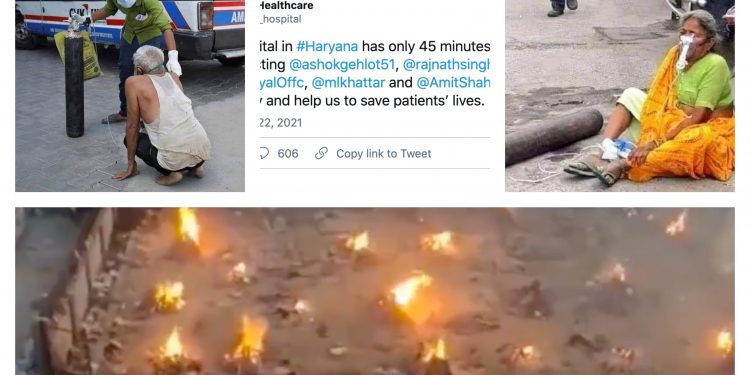As India struggles to fight the deadly COVID-19 pandemic that has killed almost 250,000 people, the crisis is taking its toll on mental health.
NRI Affairs Social Media Desk
Representative image by Edward Jenner from Pexels
A Canadian woman who needed technical support was connected to a call centre in India. And her experience with the Indian employee was heart-wrenching, to say the least.
Sarah Bezanson posted her experience on social media, and her post has gone viral.
Here is what Ms Bezanson wrote:
I had to call for some tech support yesterday. While we waited for a diagnostic program to load, the gentleman on the phone made some small talk. Asked me where I was. I told him and then asked the same.
His voice caught. “New Delhi,” he said softly.
I paused. “Oh. And how are you doing?”
He broke down. “I’m sorry,” he wept. “I’m so sorry. It’s really bad here. I’ve lost someone every day for 10 days.”
Every. Single. Day. I cannot imagine.
I tried to offer some comfort. Told him to forget the issue I’d called about. That he had nothing to be sorry for. That we could talk if he needed to or just leave the line open in silence so he could take a break from the phones and hold space for his grief.
We stayed on for almost an hour, just being humans.
We live in a connected world. You never know who you are reaching when you call a toll free line or jump into a chat. There’s a person on the other end and they may be valiantly showing up and doing their best while they are living through absolute hell.
Please be kind.
Several people have commented on this post, sharing similar experiences.
“I have a similar experience when I contacted Norton customer service, and it turned out she was in India and also affected,” posted a Twitter user Pritam.
However, some doubt that the story is true.
Another Twitter user Neelam Gaur said, “This is a beautiful but completely unbelievable story. Indian tech companies hardly show this compassion, let alone leaving their resource for an hour sharing the grief. All calls get audited, and they even measure the smallest break that one takes during the shift.”
Follow NRI Affairs on Facebook, Twitter and Youtube.











